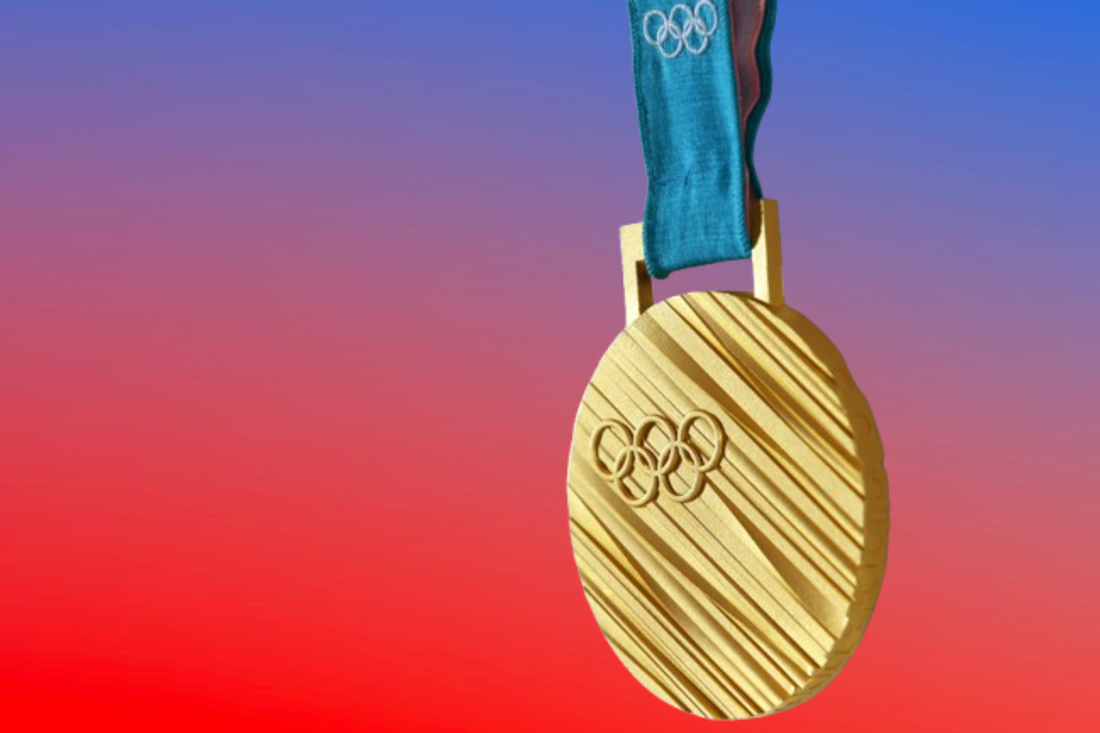The Olympic gold medal is regarded as the highest award one can win in all sports, marking a crowning accomplishment in an athlete's entire career. But the truth is, there isn't nearly as much gold in an Olympic gold medal to begin with. This article presents an in-depth look at what the gold medal is made of, as well as its historical context, and symbolic meaning, touching on sustainability processes where possible.
The 2024 Olympic Gold Medal Composition and Weight
The 2024 Olympic gold medal, constructed using a mixture of heritage and modern materials, continues the process of its predecessor.
Weight and Composition
Gold Medal: 529g
Amount of Gold: Only 6 grams of the weight are pure gold, roughly just 1.3% on a medal weighing several hundred grams. The gold is just plating on the silver center.
Silver weight: Silver accounts for 505 grams of the total weight, which means it is around 95.4% silver.
Other Metals: In addition, 18 grams of iron were also sourced from the Eiffel Tower and used in this medal, a standout feature for medals made after 2024 that provides them with unique historical connectivity.
Historical Context
Until The 1912 Stockholm Games, Olympic gold medals were made of solid gold. Unfortunately, these medals were abused due to the financial difficulties that beset many after World War I. At the 1920 Antwerp Games, the gold medal was silver gilded with a thin layer of actual gold. The medals have been kept in that vein, with 2024's hardware fitting the new normal of the recent Olympics.
A closer look shows that a shift in composition is mirroring wider economic realities and the escalating expense of precious metals. In this case, a gold medal from the 2012 London Olympics possesses more or less the same quantity of precious metal as previous Olympic games, and this trend has continued for almost a decade.
The Symbolic and Intrinsic Value of the Gold Medals
While the gold medal's monetary value is substantial, its symbolic value is priceless.
Symbol of Achievement
The Olympic Gold Medal means years of dedication and training sacrifice for athletes. For most competitors, it is a physical testament to years of sweat and knock-on dreams. The intrinsic worth of a gold medal is the emotional and psychological feelings accompanying it, far overshadowing its material prize.
Cultural Significance
The 2024 Olympic gold medal design includes elements that nod to the host nation. While the medal has a beautiful look, it also contains iron from Eiffel Tower. The medal's importance to certain cultures gives it extra layers of meaning, making the medallion a coveted relic for athletes and investors.
Environmental and Sustainability
Sourcing of Materials
The medals for the 2024 Olympics are notable regarding some of those things being compliant with different systems around repair projects on site: ironwork from a former renovation going into production. Not only does this approach recycle materials from history, but it is also much greener than new metal mining.
Ethical Considerations
Robert Cyran of Reuters Breakingviews wrote on August 5, 2016, that sourcing gold and silver for Olympic medals raises ethical considerations. Mining precious metals can be highly destructive, devastating habitats, land degradation, water pollution, and air contamination. Consequently, the rising demand to trace such products along their supply chain is getting louder as we aim to verify if they come from ethical and sustainable sources.
Future Directions
Recognizing the need to focus on sustainability, the International Olympic Committee (IOC) has pledged to improve the Games' environmental legacy. Among its efforts are efforts to use recycled materials in producing medals and encourage environmentally responsible practices among competing nations.
The medals that athletes win are becoming more and more valuable as the price of gold goes up. While they are worth a lot of money, these medals truly signify years and someone's sacrifices and dedication, making them something you cannot put any monetary value on. Moreover, their dedication to sustainability within the production reflects a recognition of environmental concerns that show how respecting both our planet and traditional practices can help with evolving traditions like those established by the Olympics.



































































